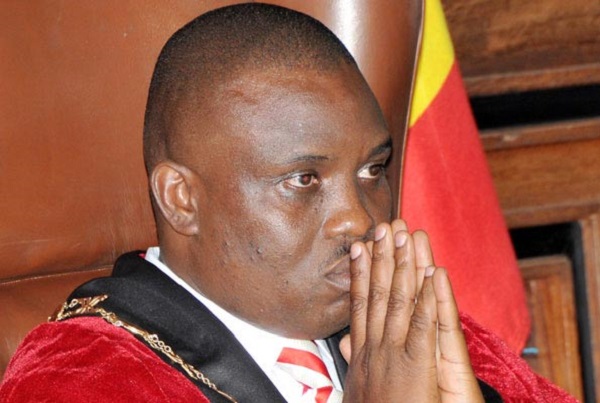
“A united DP can lead,” he says, “We want to go back to the original principles of the idea of the struggle for democracy in Uganda. We want to stop thinking small.”
He eagerly recounts UYD’s early years, from when it was officially recognised as the party’s youth wing in 2015, and his own part in it.
“It has been a force to reckon with in Uganda’s political struggles,” he says, “UYD stood in the gap when political parties were out of the picture from 1995-2005.”
He describes how, in that ten year period, many in the current crop of leaders across the political spectrum trained under the UYD.
“I was one of those people,” Mao says, “I was the first UYD member to join parliament in 1996. I was also its first member to lead DP.”
He mentions politicians like Erias Lukwago, Paul Mwiru, and the NRM Treasurer Rose Namayanja as people who have sprouted from UYD among others. Mao is not rueful as he describes their departure from DP.
“Over the years we were dispersed because the mother party was institutionally weak,” he says, “The elders were fighting and UYD started taking sides.”
He adroitly jumps past his present squabbles with Lukwago, Lulume and others and delves into history.
“Some people were on the side of Francis Bwengye, others were on the side of Kawanga Semogerere which led to a loss of sense of direction,” he says.
Semogerere led the party from 1980 until 2005 when the late John Sebaana Kizito took over, and many of those in UYD today barely recall what those days were like. But Mao is unfazed as he labours the history. He says, as a result of the disarray, some UYD members were compromised, some started their own factions, and others decamped to other political parties.
“This trend continued when I took over the party leadership,” he says and dives back into history.
“When I was elected DP president in Mbale, Sam Lubega formed his own faction. At the same time, we faced another rival faction called the Suubi group which was meant to promote Buganda’s agenda and also allied with Besigye,” Mao recalls.
He describes a faction called Truth and Justice (TJ) which Lukwago formed and how it absorbed the Lubega and Suubi groups.
Reunion welcome
The history is interesting, but interviews with Mao opponents in the party show that the reconciliation efforts are not welcome all round. Nambooze says she is not attending.
She says she does not know the direction the meeting is going to take. “UYD has a different ideology,” she says, “We are not following the constitution; it stipulates that we hold an annual delegates conference.”
“All the party organs are not functioning; the National Council is supposed to meet every six months but it has not; the DP Parliamentary group is supposed to sit weekly but all that is not happening.”
She accuses Mao of undermining the party. “The president has become the party and he takes decisions arbitrarily,” she says.
 The Independent Uganda: You get the Truth we Pay the Price
The Independent Uganda: You get the Truth we Pay the Price



DP died (or became obsolete) on the very table that it was formulated. DP was formed to fight Protestantism that loomed over Uganda’s politics at the time. DP’s interpretation of events in Uganda’s political sphere were further narrowed down to Buganda region and this is where its “fixation” largely relied or so, continues to rely. Benedicto Kiwanuka sought for ways of counteracting the then prevailing political status quo. In founding the Democratic Party, he didn’t only provide himself with the platform to fight the protestant establishment but he also built himself a “pulpit” that made him a “catholic chief.” This put him on a direct collision path with the Kabaka.
When Uganda attained its independence, it somewhat pushed the Kabaka politics and Buganda at the peripheral. Other forces other than Buganda where in the “cockpit” of Uganda’s politics. This meant that DP also had to change its rules of engagement, a fact that has deluded them until today. Incidentally, Norbert Mao highlighted DP’s shortcomings at his first failure of becoming its president general- he referred to it as a “tribal clique.” Hajji Nasser Ssebagala had echoed similar views earlier when he said DP was “centred” at Rubaga Cathedral which also houses the headquarters of the catholic faith.
If DP wants to survive, it must “die” the second time and then “germinate” in a different skin that suits the current political tide. DP must come to terms that it has been in limbo for the last 56 years. DP could pride itself as the oldest political party but that’s only “reliving” history. Reality demands, that a political party should be able to take and, or, retain political power.
The simple formulae for work done is: Work = Force x Distance. DP could have covered the distance of 64miles since its inception (1954) but there is a resounding silence about its absenteeism in matters of national politics. (DP terina work!!!)